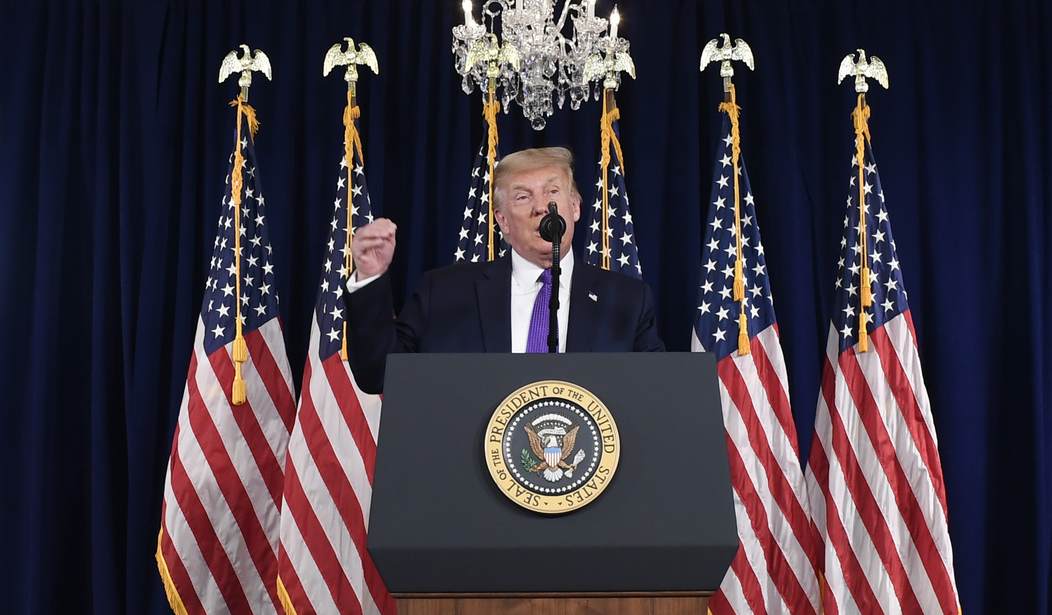In responding to the coronavirus pandemic, President Trump has rightly focused on the tremendous innovative capacity of American businesses -- first by waiving regulations that impose unnecessary burdens, next by providing incentives to get tough jobs such as vaccine development done as quickly as possible.
That's why it was so disheartening to see the recent executive orders on prescription drug pricing. They point in exactly the opposite direction: toward more government intervention in a way that will reduce access to the latest treatments and stifle innovation.
One of the executive orders empowers the federal government to set prescription drug prices for the vast Medicare program based on the cost of the same medicines in other developed countries.
This International Pricing Index (IPI) formula goes by the euphemism "most favored nation" pricing in the latest Executive Order. The sound-bite in support is that Americans shouldn't pay higher prices than people in other advanced economies.
But here's what they won't tell you: the "reference countries" themselves have fully or partially socialized health care systems in which governments impose price controls. The IPI is just a dodge to introduce price controls into the United States.
Another executive order would speed up allowing importation of medicines from Canada and elsewhere, where name-brand drugs are often cheaper than in the United States. The reason they are, however, is once again that other countries’ systems of socialized medicine allow governments to set prices on a take-it-or-leave-it basis for drugmakers.
Recommended
Assorted variants of these proposals have been bouncing around Washington for years. The motivation is understandable; they offer a superficially popular political fix.
But the economic damage of price controls would be severe. As a group of 150 economists wrote in a 2018 letter to Health and Human Services Secretary Alex Azar, "setting price controls at below-market rates leads to shortages, squeezes the cost bubble toward some other portion of the economy, and imposes a deadweight cost on society."
For patients, price controls can mean unavailable treatment options. The economists warned of "a reduction in patient access to certain drugs, less investment in the research and development of new drugs, and cost-shifting that raises the prices of other therapeutics.”
The research and development costs to take a new treatment from the lab through the federal approval process to market average $2.6 billion, according to a 2016 Tufts University study. Investors simply won't fund such research if the government is setting prices. Research initiatives currently underway could slow future breakthroughs or they could never happen. Ultimately, taxpayers lose too. Higher utilization of innovative drugs reduces the need for surgeries, long hospital stays, and other expensive therapies. For modest savings in Medicare drug costs now, the executive orders sacrifice bigger savings later.
But the true cost of price controls on prescription drugs will be measured in lives lost.
President Trump's own top economists understand this issue. Assessing House Speaker Nancy Pelosi's proposed price control legislation -- which, too, relied on an IPI-style approach -- the White House Council of Economic Advisers wrote: "out of 300 projected new medicines that would otherwise be approved over 10 years by the Food and Drug Administration, 100 could be severely delayed or never developed. As a result, CEA estimates H.R. 3 would erase a quarter of the expected gains in life expectancy in the United States over the next decade.”
The reason some medicines cost less abroad is that other governments piggyback on scientific innovation in the United States. That's a real problem -- but crushing biomedical discoveries here is no solution.
The Trump administration was leading health policy to a better place for patients and taxpayers. Insurance coverage options were expanded, and when the pandemic hit, access to tele-health services were made viable for millions of American seniors -- changes that should be made permanent. Restrictions have been loosened to allow health professionals to practice across state lines, buttressing medical services in coronavirus hot-spots. Altogether, federal, state and local governments have so far waived or suspended some 850 regulations to give American families, businesses, and public agencies breathing room to combat COVID-19 and the economic downturn.
The new executive orders threaten to undo this progress. The administration should abandon this unwise course and steer back toward health reforms that truly benefit consumers and taxpayers.
Pete Sepp is President of the National Taxpayers Union.

























Join the conversation as a VIP Member